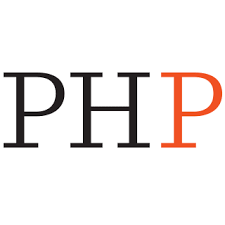Preventing Medical Debt From Disrupting Health and Financial Health
As the leading cause of bankruptcy in the U.S., medical debt impacts the financial lives of millions of vulnerable Americans each year. There are a number of immediate actions for healthcare stakeholders – including hospitals and health systems, insurers, and employers – to take to prevent medical debt and its devastating impacts. By working to prevent medical debt, organizations can support consumer health and well-being while also strengthening loyalty, trust, and community reputation.
By Michelle Proser, Uzma Amin
-
Category:

Data Spotlight

~1 in 6 Americans (18%)
report medical debt in collections as of June 2020.

$140+ billion
in medical debt now burdens patients and their families across the country.

#1 most common past-due bill
that consumers are contacted about by debt collectors.
Who Can Help Prevent Medical Debt?
This four-part report series focuses on the prevalence and impacts of medical debt, who is most at risk, and actionable strategies and recommendations hospitals and health systems, insurers, and employers can take to prevent it. We recommend beginning with the Issue Overview report, then exploring the brief best aligned to your industry and role. The Financial Health Network developed this series with support from the Robert Wood Johnson Foundation* and a council of stakeholder experts.

For Hospitals and Health Systems
Read about actionable strategies healthcare providers should take now to improve financial assistance and repayment programs, support informed patient decision-making, and proactively identify patients at risk for medical debt to target financial assistance.

For Insurers
Discover opportunities insurance providers should seize now to help members navigate plan selection, understand key terminology, reduce out-of-pocket expenses, utilize preventive care, and improve administrative processes that affect customers.

For Employers
Find out about proactive steps employers should take now to assess employee health insurance affordability, educate their workforce on insurance basics and out-of-pocket costs, help workers manage healthcare expenses, and offer plans based on employees’ needs and circumstances.
Our Supporter
Support for this report series was provided by the Robert Wood Johnson Foundation. The views expressed here do not necessarily reflect the views of the Foundation.
About the Advisory Council
The Financial Health Network developed this report series through research and by conducting three working sessions and individual interviews with a 14-member Stakeholder Advisory Council. This Advisory Council included representatives from across the healthcare ecosystem – hospitals and health systems, clinicians, insurers, employers, healthcare consumers and advocates, health technology vendors, health policy experts, and philanthropy organizations. These conversations guided the actionable and strategic recommendations presented in this series.
More to Explore
Exploring the Link Between Housing and Healthcare Costs and Weather Events
Households that experienced a weather event were also more likely to face a range of unexpected housing- and health-related expenses.
Financial Strain and Health
In the United States, financial stress significantly impacts overall well-being. A staggering 40% of Americans report experiencing high stress related to money, while 76% of American households live paycheck to paycheck.
Exploring the Interconnectedness of Financial and Mental Health
Our recent Member-exclusive Executive Roundtable shared several ways organizations can support people’s financial and mental well-being.
Sign Up to Receive Our Newsletter
If you’re a healthcare professional dedicated to improving physical and financial health, sign up to receive our newsletter today.
Written by
Preventing Medical Debt From Disrupting Health and Financial Health
Explore the trends. Discover new insights. Build stronger strategies.




